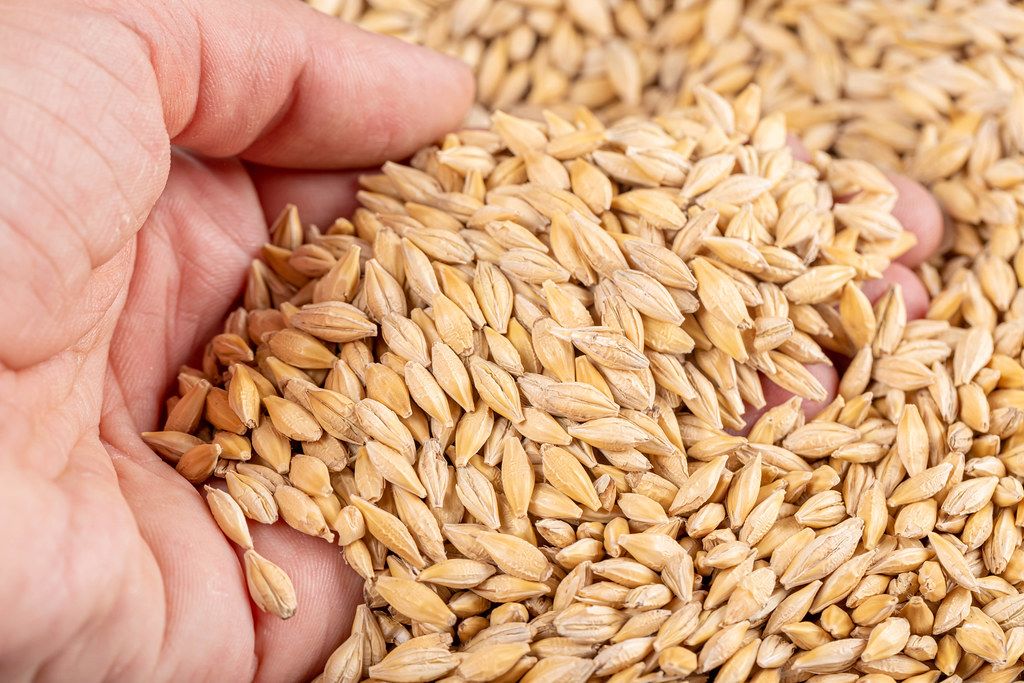Barley is an ancient grain that has been consumed for thousands of years. It has gained popularity in recent years due to its nutritional profile and numerous health benefits. This comprehensive guide will delve into the nutrition facts of barley, its health benefits, and provide tips on how to cook and incorporate it into your diet.
Nutrition Facts of Barley:
Barley is a nutrient-dense grain that offers a range of vitamins, minerals, fiber, and antioxidants. Here is a breakdown of its nutritional composition per 100 grams (cooked):
- Calories: 123
- Carbohydrates: 28 grams
- Fiber: 3 grams
- Protein: 3 grams
- Fat: 0.4 grams
- Potassium: 135 milligrams
- Magnesium: 33 milligrams
- Phosphorus: 56 milligrams
- Iron: 0.6 milligrams
- Vitamin B3 (Niacin): 0.5 milligrams
- Vitamin B6: 0.1 milligrams
Health Benefits of Barley:
- Rich in Fiber: Barley contains both soluble and insoluble fiber, making it beneficial for digestion and promoting regular bowel movements. The fiber in barley can also help reduce cholesterol levels and control blood sugar levels.
- Heart Health: Barley is known to support heart health due to its high fiber content and beta-glucan, a type of soluble fiber that has been linked to lower cholesterol levels. Additionally, the antioxidants present in barley help reduce inflammation and oxidative stress, contributing to cardiovascular health.
- Blood Sugar Control: The soluble fiber in barley slows down the absorption of sugar, preventing blood sugar spikes and helping to manage diabetes. Barley also has a low glycemic index, making it a suitable grain for individuals with diabetes or those looking to maintain stable blood sugar levels.
- Weight Management: Barley is a filling grain due to its high fiber content, which can help control appetite and promote weight loss. It provides sustained energy and keeps you feeling fuller for longer, reducing the likelihood of overeating.
- Digestive Health: The fiber in barley promotes a healthy digestive system by preventing constipation and supporting the growth of beneficial gut bacteria. This can enhance overall gut health and contribute to a stronger immune system.
- Nutrient Profile: Barley is a good source of important vitamins and minerals, including magnesium, phosphorus, potassium, iron, and B-vitamins. These nutrients play essential roles in various bodily functions, such as energy production, bone health, and red blood cell formation.
How to Cook Barley:
Cooking barley is relatively simple, and it can be incorporated into various recipes. Here’s a basic method for cooking pearl barley:
- Rinse the barley under cold water to remove any debris.
- In a saucepan, combine 1 cup of barley with 3 cups of water or broth.
- Bring the mixture to a boil, then reduce the heat and let it simmer for 30-40 minutes or until the barley is tender but still chewy.
- Drain any excess liquid and fluff the barley with a fork before serving.
Tips for Using Barley in Recipes:
- Salads: Cooked and cooled barley can be used as a base for salads. Combine it with vegetables, herbs, and a dressing of your choice for a refreshing and nutritious meal.
- Soups and Stews: Barley can add a hearty texture and thickness to soups and stews. Add cooked barley during the last 30 minutes of cooking for optimal tenderness.
- Risotto: Use barley instead of rice to make a delicious and healthier version of risotto. The chewy texture of barley adds a unique element to this classic dish.
- Breakfast Porridge: Cook barley with milk or plant-based milk, and sweeten it with honey or your preferred sweetener. Top it with fresh fruits, nuts, or seeds for a nutritious and satisfying breakfast.
- Side Dish: Serve barley as a nutritious side dish alongside roasted vegetables, grilled meat, or fish.
Conclusion:
Barley is a versatile grain that offers numerous health benefits and a rich nutritional profile. Its high fiber content, heart-healthy properties, blood sugar control, weight management benefits, and contribution to digestive health make it an excellent addition to a balanced diet. By incorporating barley into your meals, you can enhance the nutritional value of your food while enjoying its pleasant taste and texture.
- Capsules of Calm: My Fun Journey with Just CBD’s Full Spectrum Options! - September 26, 2024
- Vessel’s Core Series Unboxed: A Fun and Detailed Review of Stylish and Durable Accessories! - August 13, 2024
- Is Barley Good for You? Nutrition, Benefits and How to Cook It - July 18, 2023




